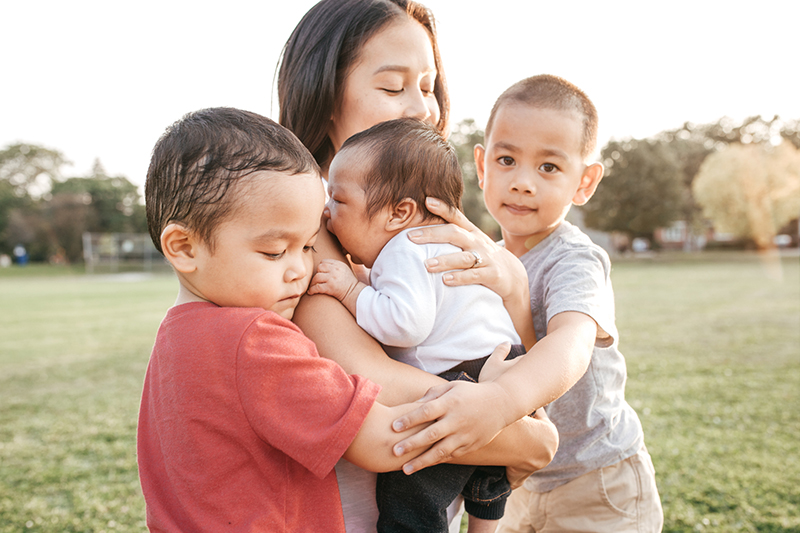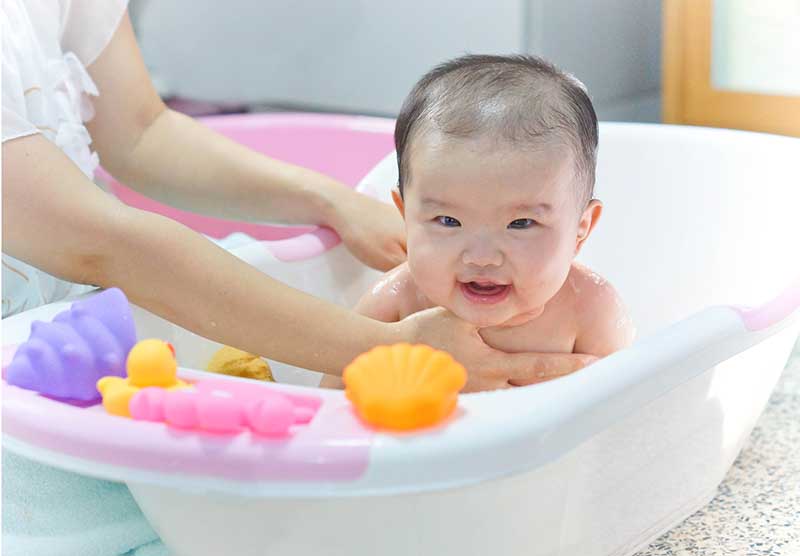Families For Life | New Baby: Helping Toddlers and Preschoolers Adjust-Young Children

When a new baby joins your family, children might feel excited – but also a bit left out. Giving children lots of love and attention helps lay the groundwork for a positive relationship with their new sibling.
Helping toddlers and preschoolers feel positive about a new baby
When a new baby comes, children (especially toddlers) might feel you’re giving all your attention and love to the new baby. If you can be sensitive to these feelings, listen and show lots of affection, it shows your other children you’re still there for them. It also helps them feel secure.
Even though you’ll be busy with the new baby, try to spend some one-on-one time with your other children.
You can also look for times when they can enjoy extra attention from their other parent or a close family member, perhaps going to the park or reading a story together.
Most children will be curious about the new baby, so let them gently touch their new sibling – but always be there to supervise. Young children often don’t know their own strength or understand how they can hurt someone else.
You could involve your children in caring for the baby. At bath time, for example, they could get some bath things ready or help dry the baby afterwards.
If you also explain to your other children that they don’t have to do too much, it helps to keep things fun and positive. For example, let them know that you’ll take care of things when the baby cries in the night.
To encourage your children to get along, give them all lots of positive attention. By doing this, you’re showing them how you’d like them to treat each other – and they’ll do as you do.
Breastfeeding and your other children
If you’re breastfeeding, it can help to think about how your other children might respond. They’re likely to be curious about breastfeeding and they might want to watch. They might also want be near you, or even climb into your lap while you breastfeed the baby.
It’s also common for toddlers and even preschoolers to ask for a breastfeed at some point. How you respond is up to you.
Usually, children who are no longer breastfed will find the experience too strange to try more than once and won’t be interested in more than a quick experiment.
If you’d prefer that your older child didn’t try breastfeeding, you can explain that breastmilk is made especially for babies, then offer a special drink or snack babies can’t have. You could also distract your child with another activity, or even offer a taste of breastmilk from a cup.
You can make breastfeeding a special time for all your children. Here are some ideas:
While the baby is feeding, give your children a favourite toy, activity or task. You might like to keep a special box of toys aside for them to enjoy at these times.
If your other children are watching, you can explain that breastfeeding is a natural part of life. You can tell your children how the milk helps the baby grow strong and healthy.
If your other children want to be close, use this time to tell them a story, read them a book, or watch while they draw you a picture or play with a toy.
Try playing your other children’s favourite music or some recorded children’s stories, and listening with your other children while you’re breastfeeding.
Challenging behaviour after a new baby arrives: how to handle it
It’s common for toddlers and preschoolers to act up during a new baby’s first year of life.
Changes in behaviour might include:
crying, yelling and even asking for the baby to be sent back
going back to behaving like a baby – for example, forgetting toilet training, needing help when eating or dressing, or wanting to be rocked to sleep
attention-seeking behaviour, especially when your attention is focused on the baby – for example, at feeding time
refusing to nap or go to bed and waking during the night
being angry around the new baby.
Challenging behaviour can be a way of asking for attention. Your children aren’t behaving like this to upset you – they just want that one-on-one time they’re used to.
Tips for dealing with challenging behaviour
You can encourage everyone to get along, and help your children by:
telling your children how much they’ve learned and grown since they were babies
involving children in caring for the new baby – this lets you spend time together, and encourages them to see themselves as big sisters or brothers who help look after the little one
dealing with children’s behaviour with patience and understanding – try to be sympathetic rather than critical as much as you can.
© raisingchildren.net.au, translated and adapted with permission
Explore more

DID YOU KNOW?
Bath time is a good way to soothe your baby but it can also be a fantastic learning opportunity for your child. Learn how you can engage him during bath time.
READ MORE